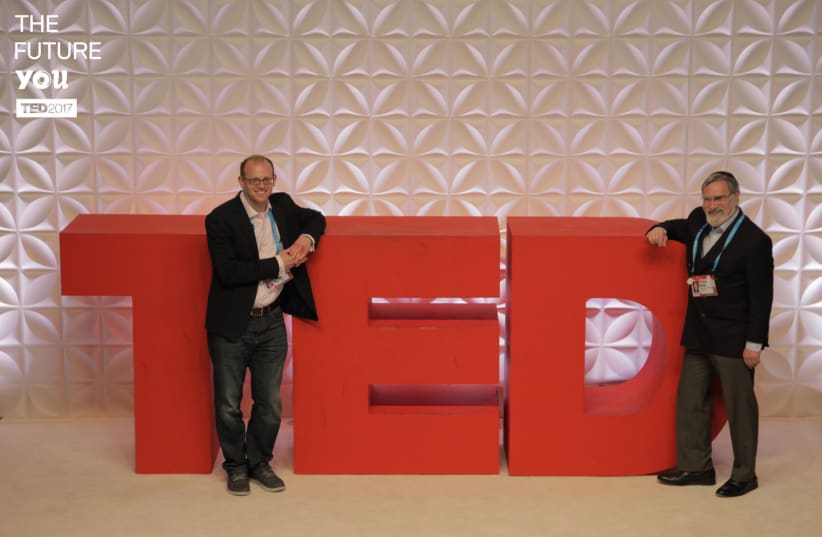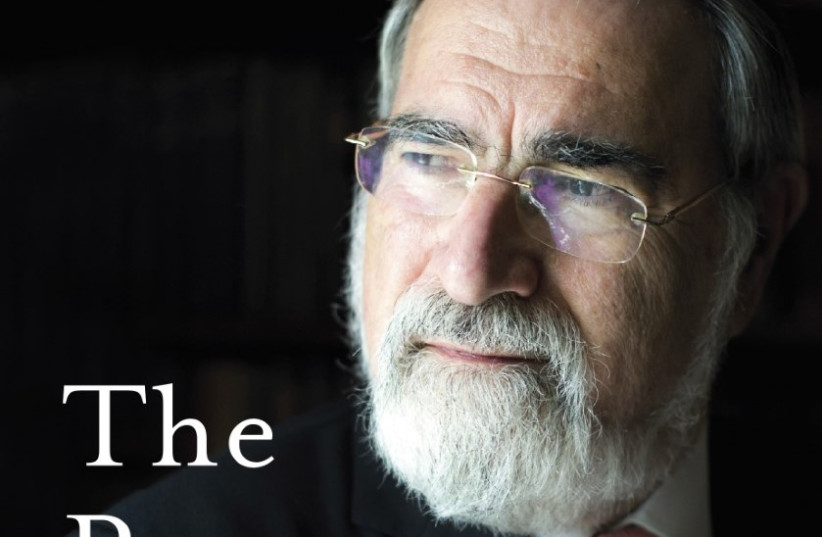"Rabbi Sacks was a friend, mentor, teacher and ‘my rabbi.’ He’ll inspire future generations, Jewish or not,” said former UK prime minister Tony Blair in a recent tribute to late chief Rabbi Lord Jonathan Sacks.
Sacks died on 20 Heshvan 5781, or November 7, 2020, aged 72. His unexpected death, after a brief illness, was a tragedy. Many still wrestle with a sense of shock and disbelief – the loss is still raw. To think that just a few months before he passed away, we were watching his inspiring videos from his home trying to help us cope with the pandemic and lockdowns, is difficult to fathom.
Indeed, Sacks was the voice of Judaism to Western civilization and became the chief rabbi of world Jewry – he was a walking kiddush Hashem (sanctification of The Name) and spread the light of faith on the global stage. He believed that rather than being the cause, religion can provide solutions to the problems and conflicts which plague modern daily life and international relations.
Whether through his TED Talks, the speech he gave on receiving the Templeton Prize or his powerful addresses at the European Parliament and the House of Lords on antisemitism, Sacks was unrivaled as an orator and transformed his audience through his passion and eloquence.
Sacks was a Torah teacher par excellence. Rabbi Dr. Raphael Zarum, dean of the London School of Jewish Studies (LSJS), said: “Rabbi Sacks wanted to make Torah accessible and Judaism meaningful to thoroughly modern people. He was a rav for our time. Rabbi Sacks was a genius at speaking to the moment. He was a master orator, making Torah relevant and engaging.”
Zarum stressed that Sacks was a tireless community builder: “Back in 2004, Rabbi Sacks was heavily involved in the renaissance of LSJS. Together with Marc Weinberg, myself and a group of young leaders, Rabbi Sacks gave us the confidence and unwavering support we needed to make LSJS the success it is now, as a center of teacher training and adult education. He guided us on what to teach, how to teach it and to continually improve.
“Rabbi Sacks taught us the power of ideas and that Judaism meant living meaningfully and thoughtfully. That the Torah still has so much more to teach us about life, the universe and everything. He inspired us to make a difference, for ourselves, our community, Am Yisrael and the world,” concludes Zarum.
Sacks was highly respected in the Jewish and secular worlds – in that regard, as a rabbinic leader, he is unparalleled in our times. Like Rabbis Y.B. Soloveitchik and Aharon Lichtenstein, he was a master of both Jewish and modern thought. Like Rabbi Shimshon Raphael Hirsch, he saw synthesis between Torah and derech eretz (interaction with the wider world) and through his writings and personal relationships, demonstrated that a Jew can feel at home in broader society.
The Magazine spoke with Dan Sacker, who, together with Joanna Benarroch is co-director of The Rabbi Sacks Legacy Trust, about how Sacks’s first yahrzeit was commemorated, together with his own personal reflections.
In the UK, his passing was marked by the Inaugural Sacks Conversation on October 11 featuring former premier Blair that was streamed around the world. (The event can be watched at www.TheSacksConversation.org)
To coincide with this, a book titled The Power of Ideas: Words of Faith and Wisdom was collated by Sacker, with selections of Sacks’s BBC Radio broadcasts, articles and speeches.
The collection includes a foreword from the Prince of Wales, with whom Sacks had a special relationship. In it, Prince Charles writes: “Although this volume represents a mere fragment of his contributions during his lifetime, it demonstrates, once again, Rabbi Sacks’s unique capacity for interpreting the present and predicting the future through a profound understanding of the past. Rich in learning and rooted in humility, this collection includes the lightness of touch, inclusive approach and elegant wit that Rabbi Sacks was so renowned for.”
To mark the yahrzeit itself, The Rabbi Sacks Legacy Trust ran a Global Day of Learning called “Communities in Conversation.” This educational initiative saw over 100 communities, schools and organizations in 14 countries, together with individuals from around the Jewish world, teaching Sacks’s ideas and sharing his wisdom.
Since his passing, The Rabbi Sacks Legacy Trust was established to perpetuate his teachings. The trust is focusing on developing educational resources presenting Sacks’s work; ensuring accessibility to Sacks’s work, including translating into multiple languages, especially Hebrew; and the continued publication of his written work.
“Rabbi Sacks had so many qualities. First was his humility. He never fully comprehended, perhaps because he didn’t want to, how great he was or how he was perceived by Jews and non-Jews all over the world,” said Sacker.
“Second was his relentless thirst for knowledge. We would joke in the office that he singlehandedly kept Amazon in business, because every day books would arrive on such a vast array of topics – economics, psychology, sociology, politics, philosophy. He had always wanted his next article, his next speech, his next book to be better than his last.
“Third was how he treated us, his staff. He respected us enormously and empowered us to challenge him, to push him, to pull him up when we felt he had fallen short. He was the smartest person any of us had ever met, yet he listened to our opinions, valued our contributions, and trusted our judgment.”
Sacker saw reading Sacks’s books as a “remarkable journey.” “Each book, in their own way, is a favorite because they each offer a singular perspective on an issue and, when taken together as a canon of work, gave you a wonderful perspective on Judaism and its contribution to wider society.”
Sacker points out four books that stand out:
“I loved The Politics of Hope because it set out his political philosophy in the clearest possible way. It is in this book where he expands on his concept of a social contract versus a social covenant; on the role of politics, economics and civil society; of the need to counter the powers of competition with the virtue of cooperation.
“Second, there is no finer book that answers the question ‘Why be Jewish?’ than Radical Then, Radical Now. It is the heartbeat of his canon and the book from which so many others have their origins.
“Third, his last book for a secular audience was Morality: Restoring the Common Good in Divided Times. It is a remarkable book which, much like Radical Then, Radical Now, in Jewish terms, pulls together so many strands of his thought as a public intellectual and moral voice for wider society.
“Finally, Rabbi Sacks dedicated the Covenant & Conversation: Lessons in Leadership on the weekly parsha to Jonathan (now Lord) Kestenbaum, Syma Weinberg, Joanna Benarroch and me, and wrote that we were the closest people he worked with and from whom he learned so much. To think that he found such value in our work is truly humbling,” Sacker concludes.
In his 2000 book Radical Then, Radical Now, Sacks argues that Judaism “is not a way of understanding or accepting or being reconciled to the world. To the contrary, it is a protest against the world, that is, in the name of the world that ought to be.” Sacks has left us all with a challenge – to carry on his protest and show humanity all that Judaism has to contribute to the progress of mankind.

